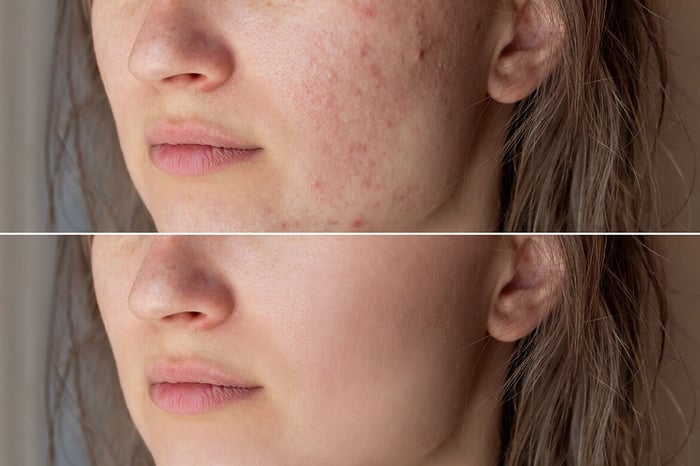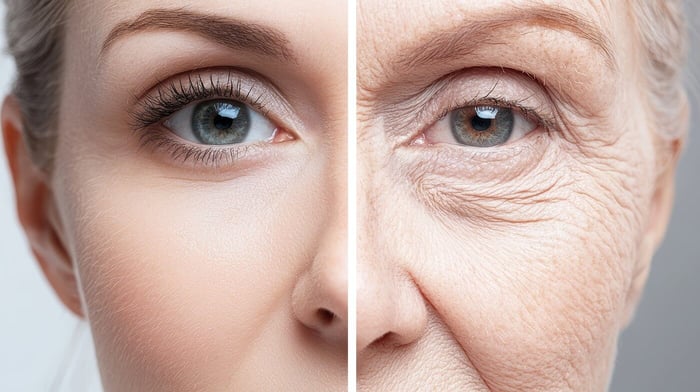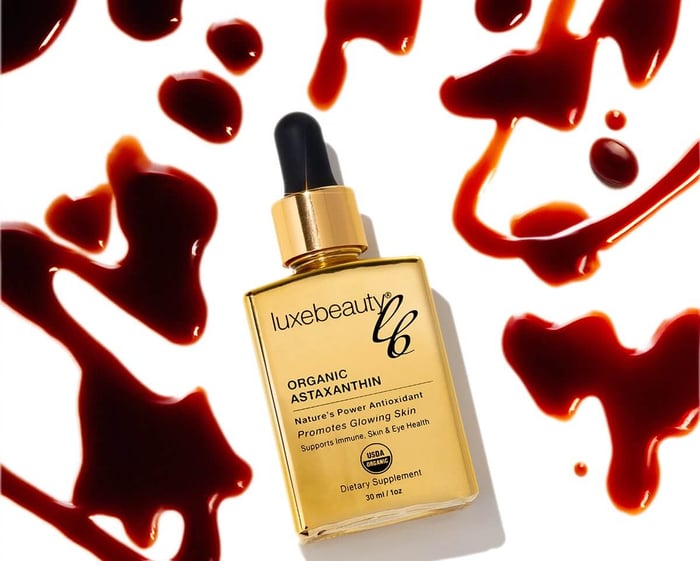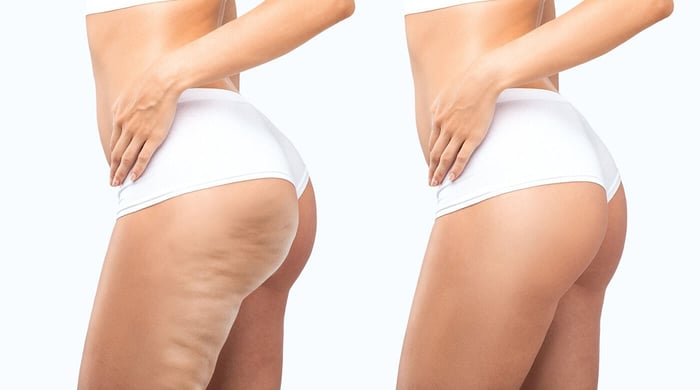When trying to get to the bottom of " why am I breaking out" and finding the Root Causes of Skin Breakouts, many people often overlook the essential role of internal health and important contributing factors.
So many factors can lead to acne breakouts, and some culprits are way sneakier than others. Sure, not washing your makeup off at the end of the day is a surefire way to wake up with pimples in the morning, but did you know there are many other factors?
I know because I have been there and was so self-conscious, especially with bare skin, going to modeling jobs.
Over 20 years ago, my dermatologist told me what I ate had nothing to do with my skin's appearance and pimples. His only solutions were harsh products with ZERO nutrients for the skin and birth control. At the time, in college, I didn't know how to treat my skin holistically and understand that skin can mirror what is happening inside our body.
Gut health and skin health have been linked as far back as the early 20th century (1)
Below is what I have observed and learned from my journey and learning from the best holistic doctors and holistic estheticians.
My Mom's stage 4 cancer healing journey woke me up, and I couldn't go back to using the products I was using before.
Factors that can contribute to breakouts:
1) Bacteria or fungal overgrowth in the gut.
Bacteria that can cause breakouts:
- Cutibacterium acnes (C. acnes, formally known as Propionibacterium acnes)
- Corynebacterium granulosum (also known as Cutibacterium acnes)
- Staphylococcus epidermidis (coagulase-negative staphylococcus).
Fungal/yeast breakouts occur when hair follicles become infected with a fungus called Malassezia yeast and or Candida. (2)
2) Eating foods that cause inflammation: What causes inflammation in one person may not be in another. It's essential to find out what drives inflammation in your body.
The typical Western diet – high fat, high sugar, low fiber – has been linked with acne.
A study in JAAD International states, "We believe that the discussed studies suggest that diet can affect acne within select populations. Increased glycemic intake and high-GI diets promote acnegenesis and exacerbate acne severity, whereas increased dairy intake has been consistently shown to promote acnegenesis only among Western populations."(3)
Working with a qualified holistic and integrative health professional is essential to determine your inflammatory foods.
3) Overburden of toxins- a build-up of toxins in the gut due to poor detoxification often manifests with non-gut symptoms, such as poor skin and breakouts. The organ systems involved in detoxing include the lungs, the skin, and the digestive tract, but two organs are especially important: the liver and the kidneys. We call the process of eliminating toxins “detoxification.”
Dr. Jill Carnahan says, "Think of your total toxic burden like a bucket. Your body is equipped to handle enough toxins that can be contained in this “toxin bucket. But when toxin exposure exceeds your body’s detox abilities, that bucket overflows" (4)
We all have different bucket sizes, so some people may be more sensitive than others.
Working with a qualified health professional is essential to determine what toxins your body is dealing with, which is critical. Some common toxins are mycotoxins (from mold), heavy metals, viruses, chemicals, etc.
4) Dimethicone is a silicone that creates a layer above the skin that traps moisture, bacteria, skin oils, sebum, and other impurities. That means those prone to acne or with oily skin are more likely to see increased blackheads and breakouts when using products containing this ingredient. Dimethicone is found in many sunscreens, makeup primers, moisturizers, etc.
5) Stress can trigger or worsen skin by changing a person's hormone balance. Stress can affect a person's hormonal balance and the skin's immune function. When a person is stressed, the body releases cortisol. This may lead to a worsening of breakouts.
6) Facial Brushes and Makeup Brushes can wreak havoc on the skin. In addition to collecting product residue, dirt, and oil, makeup brushes are a breeding ground for bacteria. This could compromise your complexion — in the form of acne breakouts and rashes.
"Dirty makeup brushes can irritate your skin and cause an infection, such as fungal infections, E. coli, or a staph infection—the latter of which can be very serious,” says board-certified dermatologist Annie Chiu, MD, FAAD, who maintains a private practice in Redondo Beach, California. “To protect your skin and kill any harmful bacteria that lingers in your makeup and beauty brushes, it’s a good idea to wash them every 7 to 10 days.” (5)
Make sure your brushes are completely dry. Bacteria need water to grow. An alternative is to avoid all brushes and apply makeup with clean hands.
7) Meats with Hormones and antibiotics
For one thing, most processed meats contain antibiotics and hormones that the human body has a hard time digesting — this can create an imbalance in one's natural hormone levels and cause undue stress on the body, which can, in turn, manifest as acne and other skin problems. (6)
8) Blood Sugar Spike.
Certain foods, namely high-glycemic foods, can cause a spike in one’s blood sugar levels. This rapid increase in blood sugar often leads to inflammation while boosting sebum production, resulting in a one-two punch that might trigger acne or make an outbreak more aggressive. High-glycemic foods that may trigger or worsen an acne outbreak:
- White bread
- Candy or candy bars
- Fried Foods
- Potato chips
- Pastries
- Sugary cereal
- Alcohol
- Soda or sugar-filled drinks
References:
1) Bowe WP, Joshi SS, Shalita AR. Diet and acne. J Am Acad Dermatol. 2010;63(1):124-141. doi:10.1016/j.jaad.2009.07.043
2) https://www.ncbi.nlm.nih.gov/pmc/articles/PMC6124225/
3) https://www.ncbi.nlm.nih.gov/pmc/articles/PMC8971946/
5)https://www.aad.org/news/how-to-clean-your-makeup-brushes
6) https://www.premierdermatologypartners.com/what-processed-meats-can-do-to-your-skin/
These statements has not been evaluated by the Food and Drug Administration. This product is not intended to diagnose, treat, cure, or prevent any disease.







